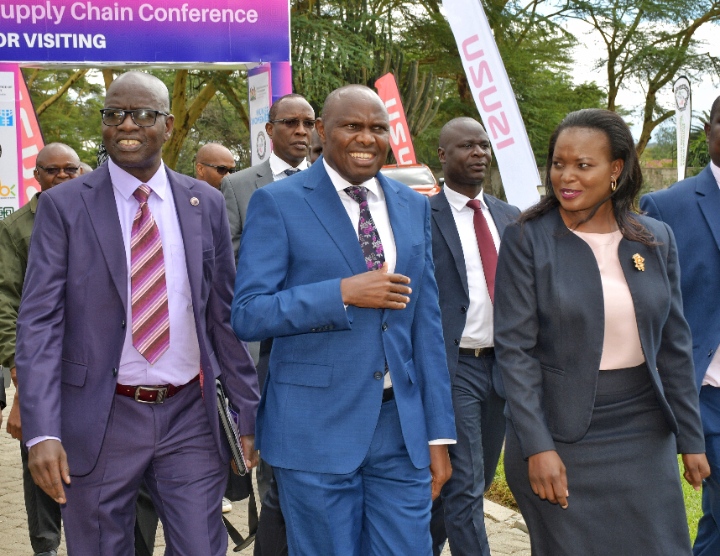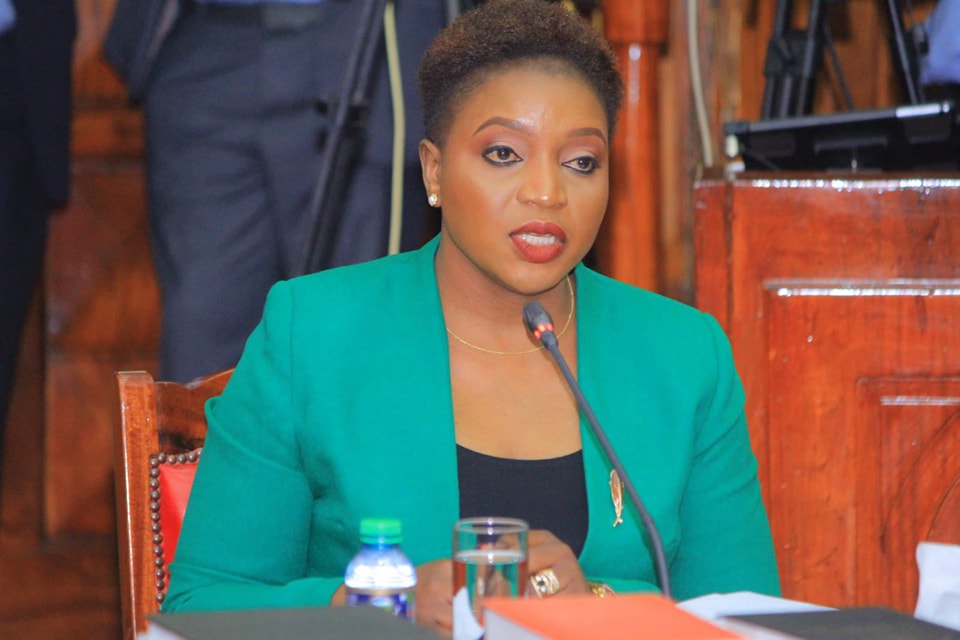Naivasha,
Thursday, April 4, 2024,
KNA by Mabel Keya Shikuku
The Chief of Staff and Head of Public Service Felix Koskei has called on the striking doctors to abandon the strike, go back to work and give room for more negotiations to unlock the impasse` that has engulfed the public health sector.
Mr Koskei denied claims by the striking doctors that the Government had breached a court order and instead claimed it is the striking medics who had violated a court order requiring them to stop the strike and go back to work as the negations continue.
The Chief of Staff was categorical that the Government was committed to see the conflict in the health sector come to an end and the medics go back to duty to alleviate any further suffering by the patients in public health facilities.
He was speaking in Naivasha on Wednesday during the inaugural annual conference for Women in Procurement and Supply Chain (WPSC).
The Chief of Staff was accompanied by the President`s Advisor on Women Rights Harriet Chiggai.
The three-day conference seeks to bridge the gender gap in the industry by empowering women and enhancing their leadership skills among others.
Kenyan doctors began their nationwide strike on March 15 leaving services in over 4,000 health facilities in the country in limbo.
On Wednesday, this week, the Employment and Labour Court Judge in Nairobi; Justice Byram Ongaya issued a third order declaring the doctor` strike unlawful.
In the strike that has now entered the third week, the Kenyan medics are demanding better pay and working conditions and are protesting against general mismanagement of the medical internship programme leading to perennial delayed posting of intern doctors who are required by law to practice under a senior doctor for one year before they are licensed.
The strike was on Monday joined by clinical officers while medical laboratory technicians from public health facilities followed suit on Tuesday.
The Kenya Medical Practitioners Pharmacists and Dentists Union (KMPDU) led by their Secretary General (SG) Davji Bhimji Atellah is also demanding for immediate payment of the basic salary arrears for doctors as per the 2017-2021 Collective Bargaining Agreement (CBA), a proper plan for employment of doctors and post graduate training, comprehensive medical covers for union members and adequate funding of the health sector by the national Government and county governments among other issues.
The KMPDU represents over 7,000 members in the country.What has also angered the doctors is the decision by the Salaries Remuneration Commission (SRC) to reduce the pay for intern doctors from Sh206, 000 to Sh70,000 per month.
Koskei termed the Sh206,000 figure as economically untenable to the Government and urged the medics to accept the offer of Sh70,000.
To this end, the Chief of Staff and Head of the Public Service announced that the Government had set aside Sh2.4billion to pay about the 1,200 intern doctors who are yet to be posted to do their internship and urged them to pick their posting letters from the Ministry of Health headquarters.
“Internship is an observation period after which the doctor can be licensed and earn the amount they desire under a suitable employer, but for now I urge all of us to come to the negotiating table with clean hands,” Koskei said.
It’s worth noting that the KMPDU team recently walked out of negotiations with the Government citing insincerity on the part of the Government and announced that the strike will continue until all the demands are met.
According to Koskei, the Government has fully cleared doctors` salary arrears with the county governments pending to clear their arrears amounting to Sh1.1billion under the 2017 – 2022 CBA agreement.
According to data from the Ministry of Health, Kenya has over 4,000 qualified doctors who are unemployed.
Thus, the ensuing understaffing hinders the government’s plan to achieve universal health coverage in the country.
At least 1,000 doctors graduate every year from universities across the country.
It’s also worth noting that the Doctor/patient ratio in Kenya is 1:17, 000 which is far below the World Health Organisation (WHO) recommendation of 1: 1000.
Courtesy; KNA



